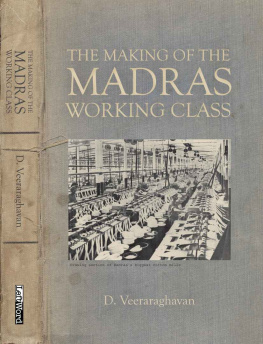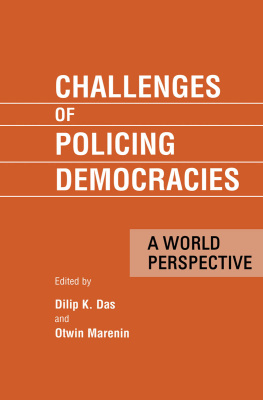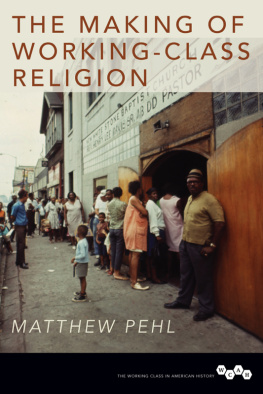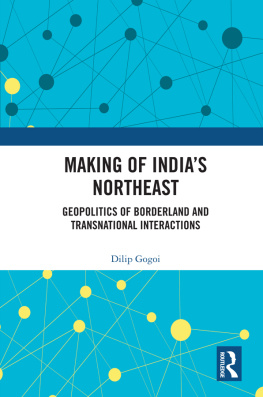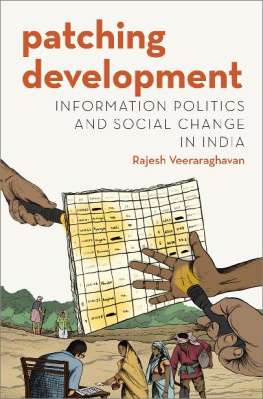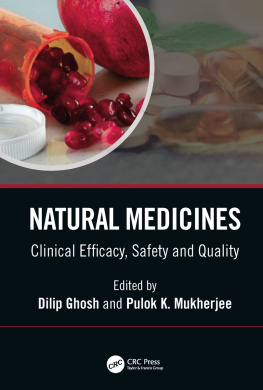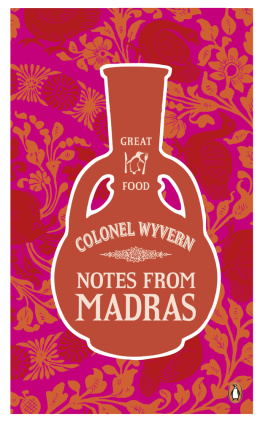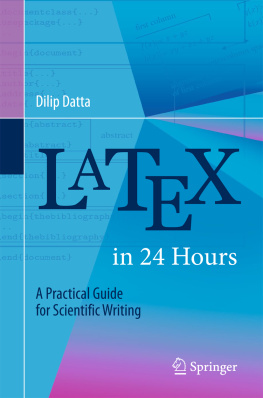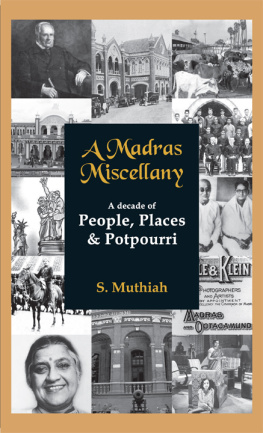Dilip Veeraraghavan - The Making of the Madras Working Class
Here you can read online Dilip Veeraraghavan - The Making of the Madras Working Class full text of the book (entire story) in english for free. Download pdf and epub, get meaning, cover and reviews about this ebook. City: New Delhi, year: 2017, publisher: LeftWord Books, genre: Science / Politics. Description of the work, (preface) as well as reviews are available. Best literature library LitArk.com created for fans of good reading and offers a wide selection of genres:
Romance novel
Science fiction
Adventure
Detective
Science
History
Home and family
Prose
Art
Politics
Computer
Non-fiction
Religion
Business
Children
Humor
Choose a favorite category and find really read worthwhile books. Enjoy immersion in the world of imagination, feel the emotions of the characters or learn something new for yourself, make an fascinating discovery.
- Book:The Making of the Madras Working Class
- Author:
- Publisher:LeftWord Books
- Genre:
- Year:2017
- City:New Delhi
- Rating:4 / 5
- Favourites:Add to favourites
- Your mark:
- 80
- 1
- 2
- 3
- 4
- 5
The Making of the Madras Working Class: summary, description and annotation
We offer to read an annotation, description, summary or preface (depends on what the author of the book "The Making of the Madras Working Class" wrote himself). If you haven't found the necessary information about the book — write in the comments, we will try to find it.
The Making of the Madras Working Class — read online for free the complete book (whole text) full work
Below is the text of the book, divided by pages. System saving the place of the last page read, allows you to conveniently read the book "The Making of the Madras Working Class" online for free, without having to search again every time where you left off. Put a bookmark, and you can go to the page where you finished reading at any time.
Font size:
Interval:
Bookmark:
the Madras Working Class
the Madras Working Class
D. Veeraraghavan

Print edition first published in February 2013
E-book published in August 2017
LeftWord Books
2254/2A, Shadi Khampur
New Ranjit Nagar
New Delhi 110008
INDIA
LeftWord Books is a division of
Naya Rasta Publishers Pvt. Ltd.
leftword.com
2013, Dr. Dilip Veeraraghavan Memorial Trust
THE MAKING OF THE MADRAS WORKING CLASS
The Madras Labour Union, founded in April 1918, is the first organized labour union in India. It was in Napiers Park, Madras, in 1923 that May Day, led by M. Singaravelu Chettiar, was first celebrated in India. These are well-attested facts in the histories of the labour movement in India. But there was no coherent account of the labour movement in Madras until D. Veeraraghavan wrote this book. Originally titled The Rise and Growth of the Labour Movement in the City of Madras and its Environs, 19181939, his doctoral dissertation was submitted to the Indian Institute of Technology, Madras, in 1987.
Veeraraghavans study is based on an exhaustive study of the voluminous documents in the colonial archive lodged in the Tamilnadu Archives, Chennai. This was supplemented by research in the National Archives of India and other copious reports produced by the colonial government. In addition to this Veeraraghavan made extensive use of contemporary newspapers such as The Hindu, New India, Swadesamitran and Navasakthi. He unearthed the Swadharma, the first periodical exclusively devoted to labour issues in India, and exploited to the full his access to leading labour and communist leaders including G. Selvapathy Chetty, C.S. Subramanyam, P. Ramamurthi, V.P. Chintan, K. Murugesan, Gajapathi, and others. Veeraraghavan pursued much of his research in the 1980s; unfortunately none of these stalwarts is any more with us and this book remains an indispensable analytical record of their experiences. Further some of the records that he consulted have also been lost. Even by the time of his search, the records in the B. and C. Mills had been swept away in a major flood in 1975. The sheer documentary foundation on which this book is based alone makes it worthwhile and the value of this book cannot therefore be overestimated.
Veeraraghavan was no dry, careerist historian. He was steeped in the left movement and the choice of his topic derived from his political commitment. Well versed in the Marxist classics he was also thoroughly read in labour history. His knowledge of the minutiae of the history of the communist party and its ideological strands and internal differences could be quite dazzling. Understandably he was drawn to the British Marxist historians but his thesis is more influenced by Jean Chesneaux than by E.P. Thompson. This book is animated by Veeraraghavans deep faith in the revolutionary potential of the working class, however unfashionable such a faith may now be.
Veeraraghavan wrote little. His M.Phil thesis, though somewhat uninterestingly titled Modified Scheme of Elementary Education of Madras State in the Year 1953 and its Impact is actually a mature and politically informed study of Rajajis infamous kulakalvi scheme which mandated that primary school students spend half a day learning their fathers hereditary trade an episode that marks a watershed in the history of post-Independence Tamilnadu. Veeraraghavan was diffident about writing and consequently published few papers; among these one must count an essay published in the Indo-British Review in his research supervisors name.
I first got to know Veeraraghavan in 1984. I had entered the musty corridors of the Tamilnadu Archives as a seventeen-year old. If I found the writings in the colonial archives exciting, the discussions at the plebeian canteen sipping cups of tea were even more exhilarating. The research hall then teemed with old and young scholars ranging from the septuagenarian C.S. Subramanyam, a founding member of the communist party in Tamilnadu who was then carrying out a study of M.P.T. Acharya, to college teachers, doctoral students, and independent scholars. An especially active group were the doctoral students from the department of humanities and social sciences of IIT Madras, all of whom worked uniformly on the inter-War period under the mentorship of S. Ambirajan. Ambirajan had just returned from the University of New South Wales and was deeply dissatisfied with the work emanating from the Western academia, especially from Australia, which was then focused on the inter-War period. He perceived an imperialist slant and wanted to correct the balance. Veeraraghavan chose to study the history of labour struggles during the inter-War period. While he focused on the city of Madras, another student, T. Thankappan, worked on labour in the rest of Tamilnadu.
As we chatted and debated at the canteen Veeraraghavan would seldom join us. He would remain huddled in a corner poring over piles of government orders of the Government of Madras. Since he paid the research assistant from his modest stipend, his reluctance to join us for tea was quite understandable. Veeraraghavan had no eyesight and was fully dependent on assistance. The statement of this disability is only a matter of fact and is no invitation to concession. He was the first visually challenged person to acquire a doctoral degree in Tamilnadu. While he was in the forefront for struggles for the rights of the differently-abled he detested patronizing and gratuitous praise. Veeraraghavan was certainly more well read than any university teacher in Tamilnadu. He had an almost insatiable thirst for knowledge, and could never have enough of assistance to read. He had an amazing memory and would recall even minute details from the documents that he had consulted. By any reckoning his doctoral thesis is one of the finest produced in the social sciences in the last few decades in this part of the country.
Veeraraghavan was born in an orthodox Iyengar family in Kumbakonam on 8 October 1958. Symptoms of retinitis pigmentosa, an eye disease known to afflict the offspring of close kinship marriages, were diagnosed at an early age. An incurable ailment, he gradually lost his sight and by the time of his school final had lost all vision.
Veeraraghavan then moved to Chennai and studied B.A. (History) at the R.K.M. Vivekananda College, M.A. at the Presidency College (197880), and M.Phil at Pachaiyappas College (198081). In 1982 he joined IIT Madras for Ph.D and submitted his thesis in 1987. The next year he joined its faculty and taught there until his death.
It was in his college student days that he was introduced to Marxism and was active in the Students Federation of India. He was close to the CPI (M) and maintained fairly close relationships in the party ranging from P. Ramamurthi to younger leaders. He would attend various party meetings and workers meetings, and taught theoretical classes. During his later years, however, he developed a distance from the party mainly because of his changed position regarding environmental issues. The break-up of the Soviet Union took its toll, and he was ill at ease with the way the party coped with this debacle.
The social sciences and humanities are poor cousins in IITs, and technology students put up with courses in them as a necessary evil. Veeraraghavan was an inspiring teacher, and he weaned away a number of students from technology and engineering. Many of those who went on to become technocrats were sensitized to social issues. Students were fond of him, and many of them donated considerable sums of money which he used for various charitable educational purposes.
Font size:
Interval:
Bookmark:
Similar books «The Making of the Madras Working Class»
Look at similar books to The Making of the Madras Working Class. We have selected literature similar in name and meaning in the hope of providing readers with more options to find new, interesting, not yet read works.
Discussion, reviews of the book The Making of the Madras Working Class and just readers' own opinions. Leave your comments, write what you think about the work, its meaning or the main characters. Specify what exactly you liked and what you didn't like, and why you think so.

